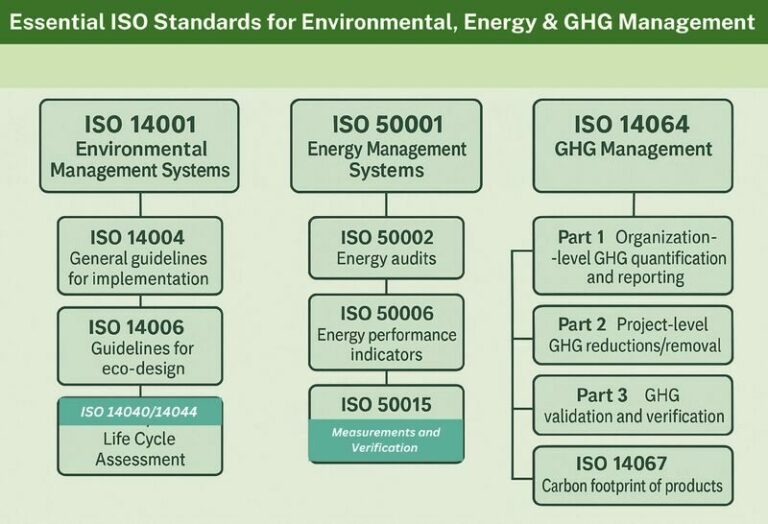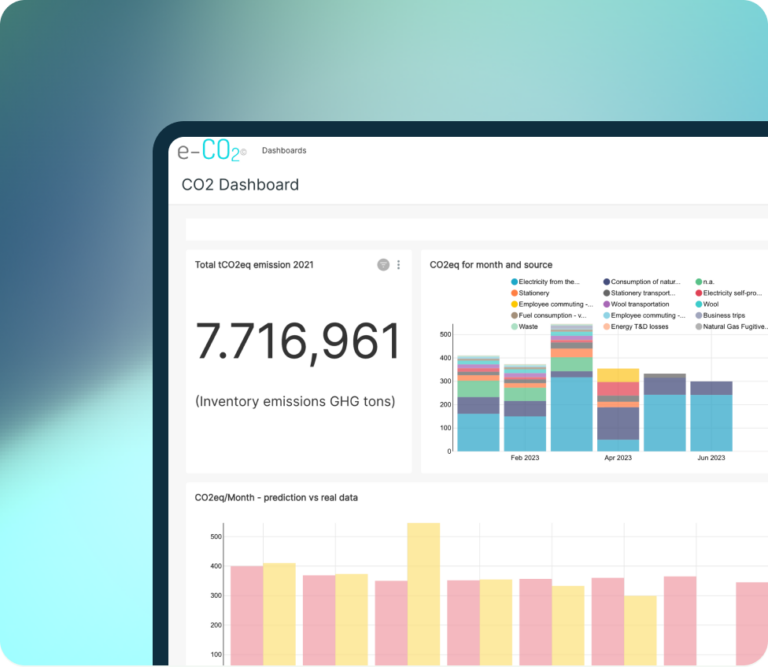ISO Standards: Your Essential ESG Survival Kit for Net Zero

Condividi questo post
ISO standards offer a strategic advantage for professionals and organizations committed to measurable and reliable sustainability. By following structured ISO families, you can effectively manage environmental impacts, reduce emissions, and confidently report ESG performance.
ISO 14000 Family – Environmental Management Systems (EMS)
This suite of standards forms the backbone of environmental management, helping organizations implement, maintain, and improve systems for managing environmental aspects:
ISO 14001 sets the requirements for an EMS, enabling any organization to systematically manage its environmental responsibilities.
ISO 14004 provides practical guidance for implementing an EMS based on 14001.
ISO 14006 integrates ecodesign principles into product development, reducing lifecycle impact.
ISO 14040/44 (LCA) offer frameworks for conducting life-cycle assessments, identifying key points to reduce emissions and improve sustainability.
These tools turn what was once a vague commitment into a structured, operational process aligned with global environmental priorities.
ISO 50000 Family – Energy Management (EnMS)
Focused on energy efficiency, this group of standards helps organizations optimize energy use, reduce carbon emissions, and save costs:
ISO 50001 establishes requirements for energy management systems, aligned with the Plan-Do-Check-Act cycle.
ISO 50002 outlines how to conduct energy audits and identify savings opportunities.
ISO 50006 provides guidance on energy performance indicators (EnPI), fueling data-driven improvement.
ISO 50015 standardizes measurement and verification of energy savings to ensure transparency and reliability.
By adopting these standards, companies can achieve continuous energy optimization and tangible ESG gains.
ISO 14060 Family – Greenhouse Gas Management
These standards focus on the measurement, reduction, and verification of greenhouse gas emissions:
ISO 14064-1 covers organizational accounting and reporting of GHG emissions (Scopes 1, 2, and 3).
ISO 14064-2 supports GHG reduction projects, enabling verified emission cuts.
ISO 14064-3 ensures the credibility of GHG statements through independent validation.
ISO 14067 calculates the carbon footprint of products, supporting consumers’ low-carbon choices.
These standards build a foundation for credible decarbonization efforts and transparency.
Strategic Benefits of ISO Standards
By implementing ISO frameworks, organizations unlock several strategic advantages:
Structured and measurable approaches to sustainability
Transparency and trust with stakeholders
Credible Net Zero communication, backed by reliable, third-party verified data
ISO certifications become more than compliance—they become a mark of reliability, integrity, and forward-thinking leadership.
Christian Sansoni




